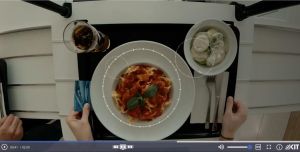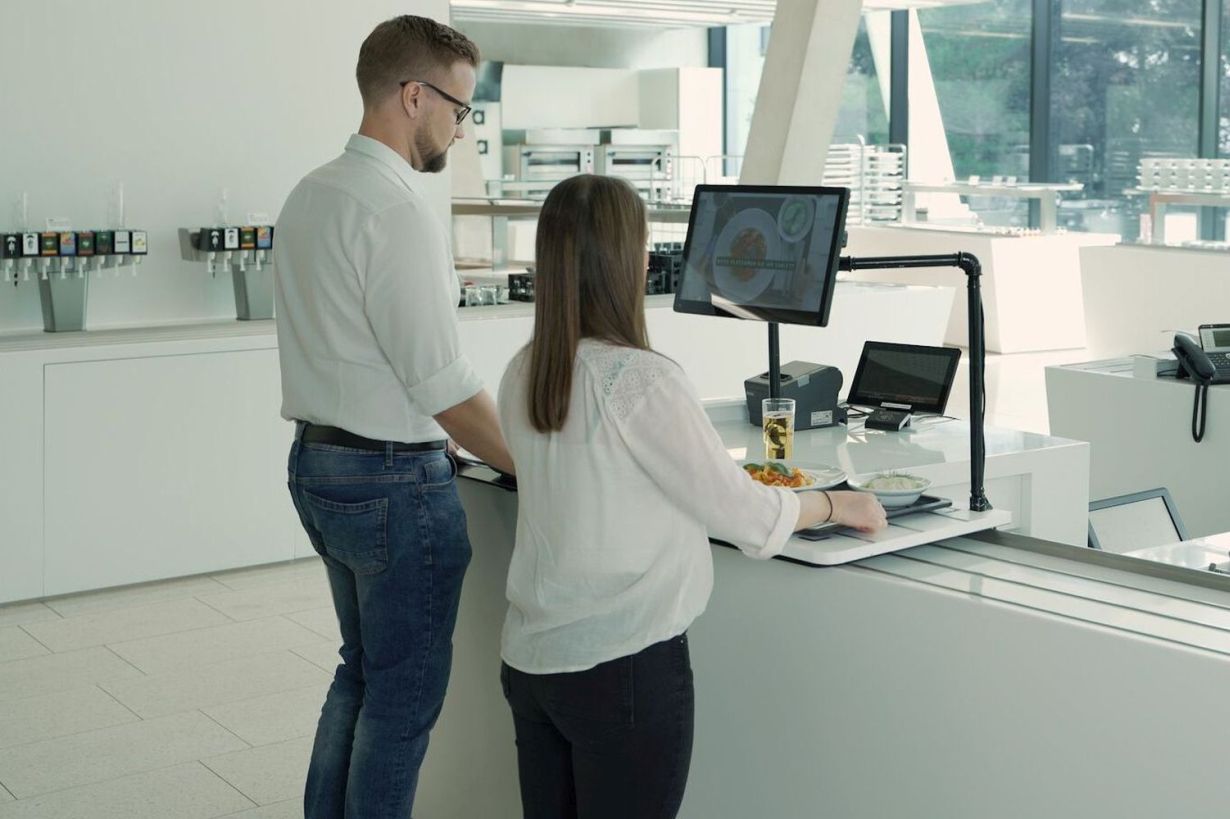In automatic translation, navigation systems, or music streaming recommendations: Artificial Intelligence (AI) is increasingly part of our everyday life. Startups of Karlsruhe Institute of Technolo-gy (KIT) use this key technology to manage smaller or bigger challenges. The new series of interactive videos of KIT presents the work of these AI pioneers. Part 1 of the series focuses on canteen operation. With an AI for image recognition, the startup auvisus plans to accelerate payment at canteens.
“Artificial intelligence offers big opportunities to solve challenges facing society and is a crucial factor in worldwide economic compe-tition. However, it also gives rise to fears of e.g. security risks. Both factors have to be considered,” says the President of KIT, Profes-sor Holger Hanselka, who also is member of the steering group of the Learning Systems Platform initiated by the Federal Ministry of Education and Research. “Startups of KIT demonstrate how AI can be used as a tool for the benefit of society. The entrepreneurs pre-sent their ideas to solve problems in an innovative way and to cre-ate a real added value for society.”
The new series of interactive videos in German “Sachen machen mit KI” (things to do with AI) demonstrates how AI is used by KIT’s startups.
Part 1 presents auvisus (in German):
www.kit.edu/kassensystem

auvisus: Automatic Cash Desk System at the Canteen
The two auvisus founders Felix Schweikardt and Kai Dierenbach have developed an automatic cash desk system for canteens. “Queues at canteens are annoying for both customers and canteen staff,” Felix Schweikardt says. “By image recognition based on artificial intelligence, we can solve this problem.” Customers simply place their selected lunch below a camera. An artificial neural net-work identifies characteristics, such as the shape, size, or color and sorts the dishes accordingly in an imaginary space. Similar dishes are allocated to a similar space based on these characteristics. And if the AI has been trained properly, the dish is recognized.
A New Video Format for Interactive Contents
KIT presents “Sachen machen mit KI” in a new video format for in-teractive contents. While playing the video in the interactive video player, viewers can choose among different image and sound tracks and obtain information from various perspectives.
Information for Editorial Offices: In a few steps, the interactive video can also be integrated into your own reports. For this access the embed code via the information button directly in the player. The interactive videos of the series can be used in connection with your reports about the KIT or the AI startups. Use the following source note: (Video: KIT).
The video player can be downloaded on the website of KIT’s Center for Technology-enhanced Learning (ZML): https://zml.kit.edu/videoplayer.php
The interactive video player is a software developed by KIT and published under a Creative Commons license. It can also be used as an open source with a CC-BY license for own creative contents.
More about the KIT Information · Systems · Technologies Center: http://www.kcist.kit.edu
In close partnership with society, KIT develops solutions for urgent challenges – from climate change, energy transition and sustainable use of natural resources to artificial intelligence, sovereignty and an aging population. As The University in the Helmholtz Association, KIT unites scientific excellence from insight to application-driven research under one roof – and is thus in a unique position to drive this transformation. As a University of Excellence, KIT offers its more than 10,000 employees and 22,800 students outstanding opportunities to shape a sustainable and resilient future. KIT – Science for Impact.

